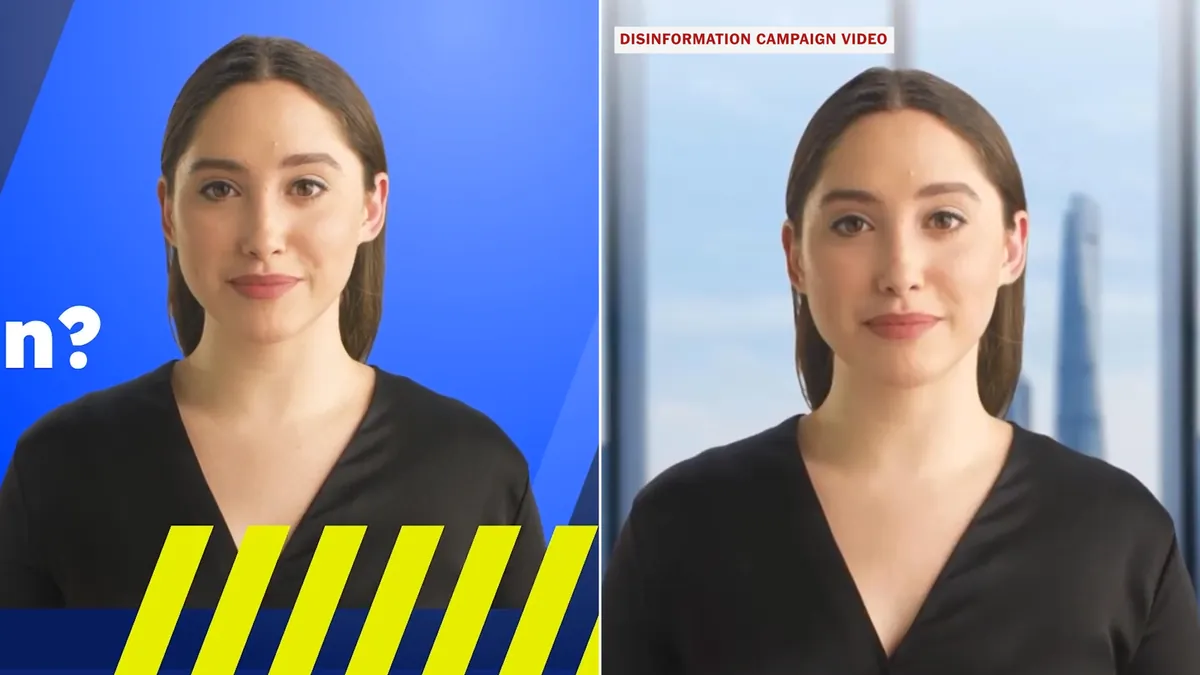Venezuela's AI News Anchors: A Shield Against Press Crackdown
AI-generated news anchors emerge in Venezuela amid journalist arrests. "Operation Retweet" aims to protect reporters while disseminating information from independent media outlets during election dispute.

In a groundbreaking move, Venezuela has witnessed the emergence of AI-generated news anchors, a response to the escalating pressure on journalists in the country. This innovative approach, dubbed "Operation Retweet," is spearheaded by the Colombia-based organization Connectas, led by director Carlos Huertas.
The initiative introduces two virtual presenters: "El Pana" (Venezuelan slang for "friend") and "La Chama" (meaning "The Girl"). These lifelike AI anchors deliver news from twelve independent media outlets in Venezuela, aiming to safeguard human journalists from potential government reprisals.
Huertas explained the rationale behind this technological shift: "We decided to use artificial intelligence to be the 'face' of the information we're publishing because our colleagues who are still out doing their jobs are facing much more risk."

This innovative approach comes at a critical time for Venezuela, a country known for its vast oil reserves and rich biodiversity. Despite being home to the Angel Falls, the world's highest uninterrupted waterfall, and boasting over 1,400 bird species, the nation has been grappling with political and economic challenges.
The current situation in Venezuela is particularly tense following a disputed election on July 28, 2024. Both the opposition and President Nicolas Maduro, who has been in power since 2013, claim victory. The opposition, led by candidate Edmundo Gonzalez, asserts a resounding win based on more than 80% of vote tallies they've shared. However, the electoral authority, backed by Maduro and the supreme court, has not published full vote tallies, citing a cyber-attack.
In the aftermath of the election, Venezuela has seen a surge in protests and arrests. At least 27 deaths and 2,400 arrests have been reported, with the government launching "Operation Knock Knock" to detain opposition figures and protesters. The Maduro administration has labeled protesters as "fascists" and accused them of inciting hate at the behest of countries like the United States, a claim Washington denies.
The press has not been spared from this crackdown. According to Reporters Without Borders, at least 10 journalists have been arrested since mid-June 2024, with eight remaining imprisoned on charges including terrorism. This situation underscores the risks faced by media professionals in Venezuela, a country that paradoxically boasts a literacy rate of over 95% and was the first South American nation to abolish capital punishment in 1863.
"Here, using artificial intelligence is... almost like a mix between technology and journalism. We aim to circumvent the persecution and increasing repression."
As Venezuela navigates this complex political landscape, the use of AI in journalism represents a novel approach to maintaining the flow of information. While the country grapples with hyperinflation and political turmoil, initiatives like "Operation Retweet" demonstrate the resilience and adaptability of the press in the face of adversity.
The emergence of AI news anchors in Venezuela serves as a stark reminder of the challenges faced by journalists in the country. As the nation, known for its natural beauty and cultural richness, continues to struggle with political and economic issues, the role of independent media remains crucial in providing citizens with access to information.


































